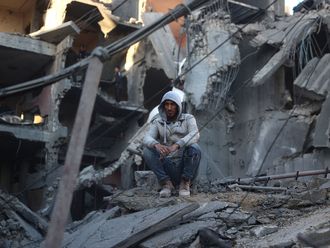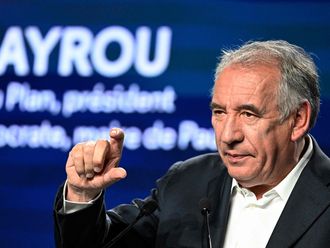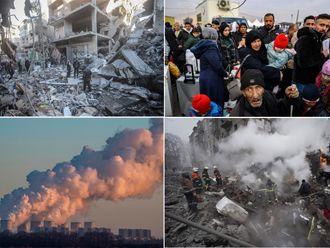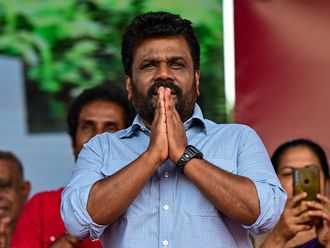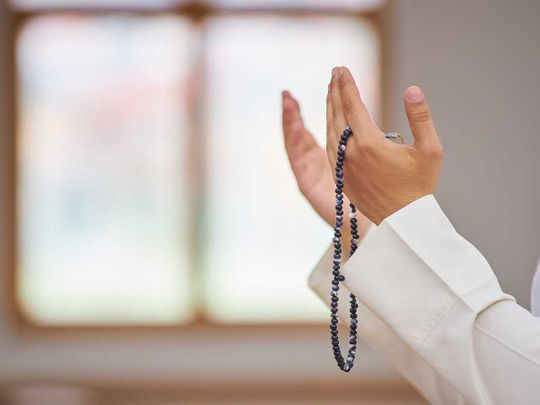
The moon was sighted and as the sun rose on the holy month of Ramadan began, a time when the 2.6 billion Muslims, domiciled in homelands the world-over, begin to fast daily from sunrise to sunset (described poetically in the Quran, 2:185, as the time when “the white thread of day becomes distinct from the black thread of night”) and in parallel rediscover, regenerate and enrich their spiritual energies of spirit.
For Muslims around the globe, in whatever time zone they are located and in whatever culture, language and national experience the constitution of their personality is anchored, the collective mood is the same: festive. And if that mood is always festive it is because Ramadan never fails to trigger the festive, as well as the spiritual, the convivial and the communal, in them.
So captivating is the magical spell that this holy month — one that traditionally commemorates the first revelation delivered to Prophet Muhammed (peace be upon him) in AD610 by the angel Gabriel — on Muslims’ teleological repertoire of consciousness!
Festive indeed. And here’s a bit of news about that from this part of the world, where this columnist has lived virtually his entire adult life: The US of A.
Diverse cuisines
On Saturday, during the first iftar of the month, hundreds of Muslims gathered in Times Square, the iconic, five-block cultural and commercial centre in downtown Manhattan, referred to by cocky New Yorkers as “the Crossroads of the World”, and distributed roughly 1,500 meals to food-insecure folks, known in less politically correct times as “homeless people”.
And the food distributed, being potluck, represented diverse cuisines common around the Muslim world: from Indonesia’s Opor Ayam to Palestine’s Carrot Maqluba and from India’s Lamb Biryani to Pakistan’s Aloo Samosa, with an opener called Fatima’s Fingers, popular in the three Maghreb countries of North Africa — to name but a few. In short, staple Ramadan food that the New York Times food critic, Tanya Sichyinsky described as one that “enlivens both suhur meals and iftar celebration”.
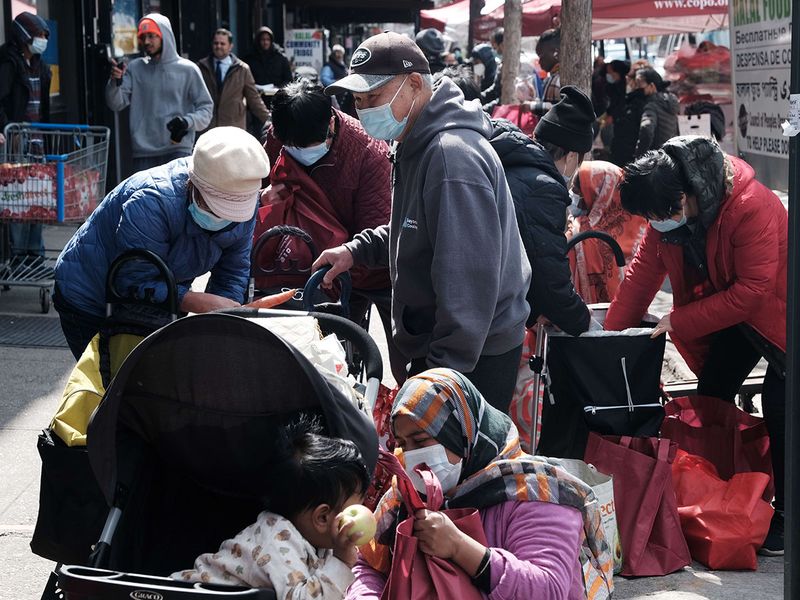
In the United States, where Islam is the largest religion after Christianity and Judaism and where the holy month is celebrated, in one form or another, by millions of Muslims coast to coast, it is not now unusual to see a local TV station posting on the screen “Ramadan Mubarak” greetings to their viewers.
And well it might. Ramadan is a phenomenon in the United States too.
I will tell you this. My claims to being a good, let alone a strictly observant Muslim are modest. Yet, each year, each Ramadan, I feel a transcendent presence around me, as if a certitude of divine meaning is enfolding me, conjoining my very being in that illusion of community — that communal sense of reference — one’s psyche strives for in quotidian life but somehow eludes one.
Gratitude to God
I also “feel”, much as I feel my own skin, how Ramadan, a month characterised by compassion for the “other”, is a time when one’s cry of gratitude to God for His gift of plenty in one’s home overlaps effortlessly with the cry of the poor in the street.
Look, each Ramadan for the last 16 years, since I was given my own bit of real estate on this opinion page to write a weekly column, I never failed to find something new to write about this holy month. And it is not so — not by far — because I had been able to hone my skills at stringing words together, but rather because Ramadan is so rich an experience, one that enables us to, well, touch base, if you wish, with the manifold truths of our spiritual being, that a writer never risks repeating himself.
And the experience is indeed so rich, its ethos so encoded in our archetype, that even an addict, one whom wild horses couldn’t drag away from the bottle for one day, let alone a whole month, will meekly, willingly and with impressive ease, abstain from his excesses during Ramadan. No self-searching therapy sessions. No rehab clinics. No cold-cold turkey infernos. Just the pull of the archetype.
No doubt you, like me, have known people like that who struggled mightily to wean themselves away from an addition, whether the addiction was to alcohol, drugs or gambling, but who as Muslims internalised the joy during Ramadan and found themselves struggling no more.
Oh, dear me, one thing we forgot to mention: Ramadan also happens to be fun, for at the end of each fast comes a feast and at the month itself comes the Eid.
Fawaz Turki is a noted thinker, academic and author based in Washington. He is the author of The Disinherited: Journal of a Palestinian Exile


